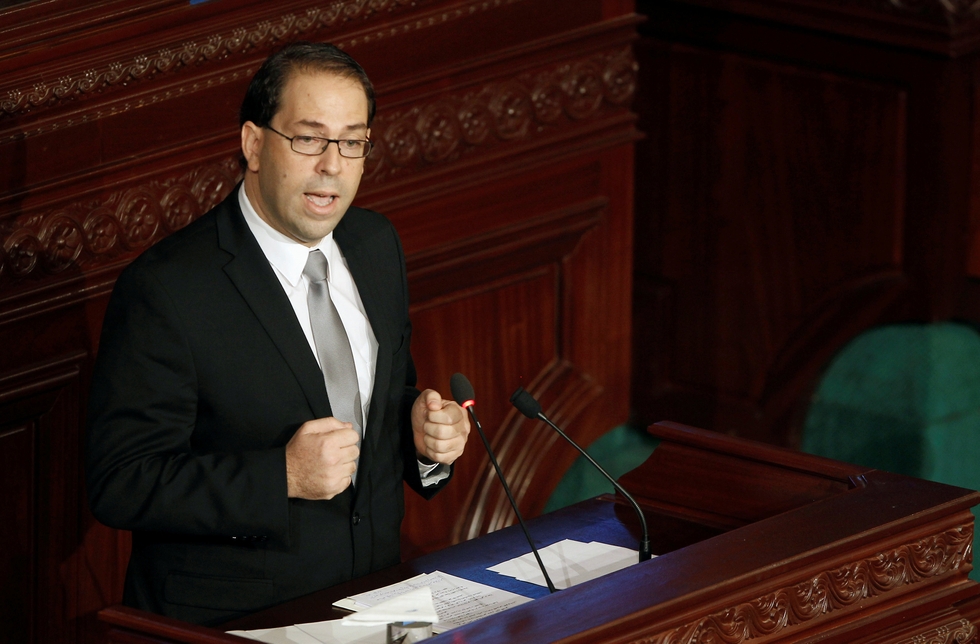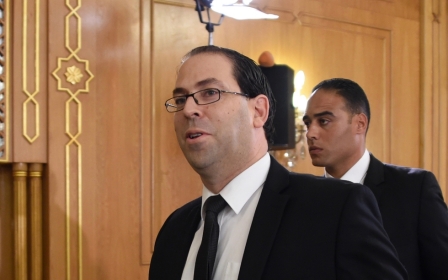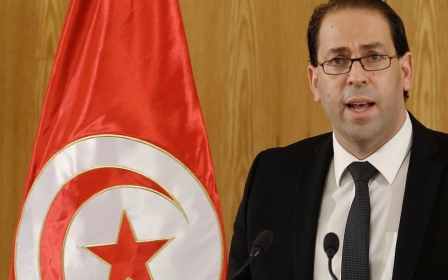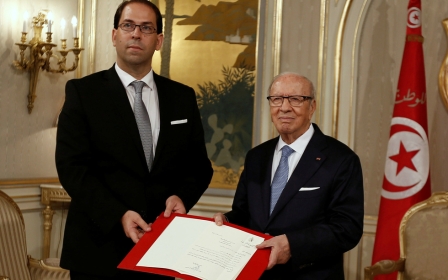Tunisia's parliament approves new unity government

Tunisia's parliament on Friday resoundingly approved the new unity government of Youssef Chahed, supporting a cabinet line-up that will have to tackle the country's pressing socio-economic and security challenges.
There were 167 votes in favour, 22 against and five abstentions. The cabinet headed by Chahed, who will be 41 next month and will become the country's youngest prime minister since it won independence from France in 1956, is set to take office in the next few days.
His predecessor, Habib Essid, who became prime minister in February 2015, was forced into a broad reshuffle in January this year when the country witnessed its worst violence since the Arab spring uprisings of 2011 that toppled president Zine El Abidine Ben Ali. Essid was eventually dismissed in a no-confidence vote in July.
Before the vote supporting the new government, Chahed warned that an austerity programme would be necessary if the country did not overcome its economic difficulties, with the economy set to grow by only as much as 1.5 percent this year, against a goal of 2.5 percent, he said.
Growth has been hurt by several militant attacks, including one in June 2015, in which 38 tourists were killed when gunmen stormed a beach resort. The incident scared visitors away from its vital tourism industry.
The important phosphate industry has declined by 60 percent in the past five years, Chahed said.
Tunisia's President Beji Caid Essebsi said in June that he would support a government of national unity as long as it includes two key unions.
"From what I have seen [of the current government], the bad points outweigh the positives, which has prompted me to ... agree to look at a proposal to create a national unity government," he said in an interview broadcast on public television channel Wataniya 1.
He said any government would have to include Tunisian General Labour Union and the Confederation of Industry, Trade and Handicrafts, which were part of a group of bodies that won the 2015 Nobel Peace Prize.
The National Dialogue Quartet, made up of four civil society groups, helped save Tunisia's transition to democracy at a sensitive moment in 2013 when the process was in danger of collapsing because of widespread social unrest.
Tunisia's current government is composed of four groups, including the party Essebsi founded in 2012, Nidaa Tounes, and the main opposition Ennahda party.
Fighting terrorism, corruption and unemployment, as well as addressing regional disparities, will likely remain priorities for any new government.
Middle East Eye propose une couverture et une analyse indépendantes et incomparables du Moyen-Orient, de l’Afrique du Nord et d’autres régions du monde. Pour en savoir plus sur la reprise de ce contenu et les frais qui s’appliquent, veuillez remplir ce formulaire [en anglais]. Pour en savoir plus sur MEE, cliquez ici [en anglais].




